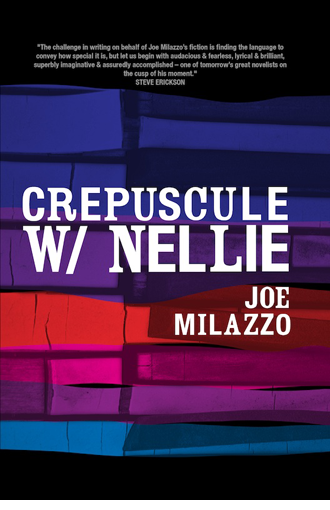 The Last Wolf, by Laszlo Krasznahorkai
The Last Wolf, by Laszlo Krasznahorkai
Herman, by Laszlo Krasznahorkai
At the outset of this review, I must admit to a bias: I am predisposed in favor of audacity and the blending of chaos and symmetry. This is not a perspective that all potential readers will share with me and I can say, quite objectively, that the writing of Laszlo Krasznahorkai is not for all potential readers. But for those of you that enjoy brilliant use of language, clever re-purposing of convention, and seamless immersion into vivid perspectives, I dare you to find better than The Last Wolf and Herman, two novellas written by Laszlo Krasznahorkai and translated by George Szirtes and John Batki, respectively.
The Last Wolf is the sentence of a man who, through a case of mistaken identity, is invited to write the story of the last wolf of Extremadura, a region in Spain. You read that line correctly. This is the sentence of that man. The entire work, spanning seventy pages, is written as a single, unbroken, grammatically correct sentence. In creative writing classes and workshops, authors are perpetually warned against ridiculousness such as this. They are told that readers do not want to devote the thought and energy required to follow, much less unpack, a work that so thoroughly contradicts traditional narrative structure. To hell with that. The Last Wolf is a work of true art, operating under its constraint with such a rigor and life that it seems hardly bound to any rules at all. The contours of this sentence are shaped in such a way that an experienced reader and writer can actually see the craft as it unfolds, as if watching Krasznahorkai mold everything into its proper place. And despite there being only one sentence, the narrative and the manner in which it is delivered never feels incomplete. Pace changes, social commentary, and all of the necessary pieces of the plot’s mosaic are presented as if the story were a mystery, asking the reader to truly participate in the creation of this work. In the moments where the text slows and looms toward a possible break in thought or an “appropriate” period, it suddenly rushes off again on a new train of ideas, bound in almost perpetual motion. Which, incidentally, keeps the read from ever being boring. Of course, the constraint is not merely there for its own sake – it helps to wonderfully encapsulate the perspective of the narrator, who is caught on some seemingly inevitable and relentless descent in perspective, lost in his own melancholy and frustration, so desperate to escape it that he seeks to live someone else’s lie. He knows that his story, and his part of this story, must come to an end, and so he drags it out to such a length that you wonder if he might not have died after that first and only period.
By contrast, Herman is, on the surface, a more traditional pair of stories. It consists of “The Game Warden” and “The Death of a Craft”, two short stories so wildly different that I would have believed anyone who had told me they were written by different authors. It is as if Krasznahorkai, after writing The Last Wolf, then set out to show his grasp of familiar narrative, as if to retroactively justify his previous boldness. And I can genuinely say I enjoyed these stories even more than the larger novella. Both stories provide a wealth of commentary on human excess and existential motivation, but they approach the topics from entirely separate angles. “The Game Warden” could almost be classified as a satirical take on the hero’s journey, if not for its profoundly serious conclusion. A simple story about a hunter and groundskeeper, the titular Herman, trying to hold back the advance of nature quickly and systematically devolves into a visceral, brutal examination of human arrogance, self-righteousness, and willful ignorance. “The Death of Craft” is one of the finest examples of atmospheric writing I have ever read, with the use of language and narrative tone so perfectly encapsulating a hedonistic mindset that I found myself feeling wanton and unclean as I read. The story involves the same general setting and chronology of events as “The Game Warden”, but it does so through the eyes of a traveling group of sensationalist dilettantes, with perspectives about as far from Herman’s as it is possible to have. Krasznahorkai’s chameleonic skill in writing such vastly different narrations is incredible, immersive, and engrossing.
Do yourself a favor and pick up these companion pieces. They are not long, but they are so well written that they hold up and present fascinating value whether they are read in a quick sitting or whether they are deliberately unpacked and interpreted. I could not be more impressed by my introduction to Mr. Krasznahorkai’s work, and I cannot wait to read more.
The Last Wolf and Herman are available for preorder now from New Directions.


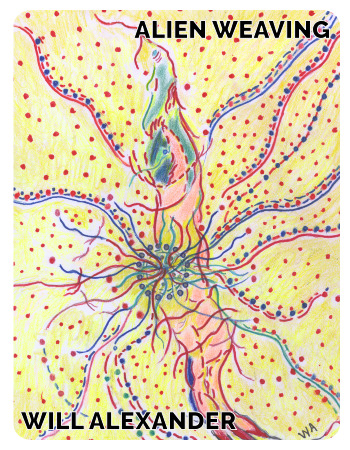

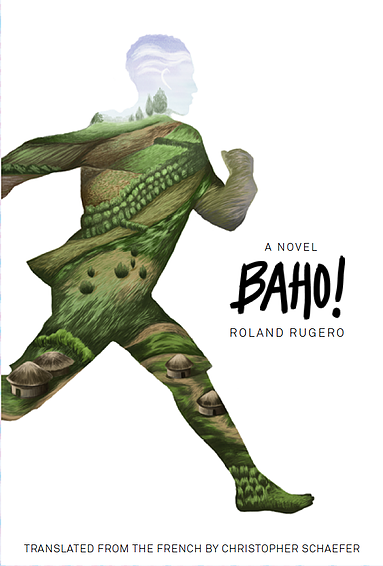
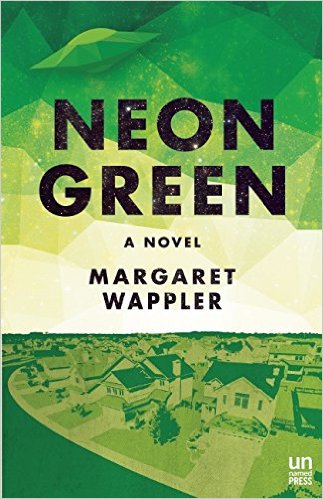
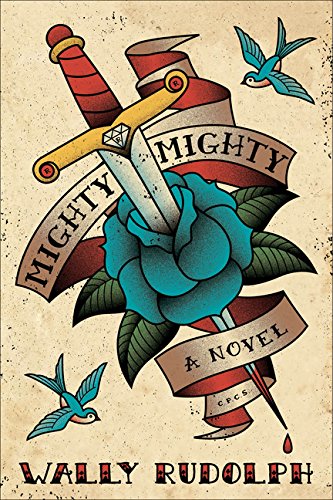

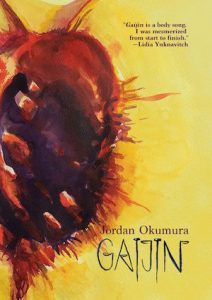 Gaijin, by Jordan Okumura
Gaijin, by Jordan Okumura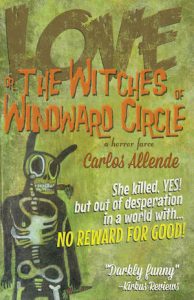 Love, or The Witches of Windward Circle by Carlos Allende
Love, or The Witches of Windward Circle by Carlos Allende
